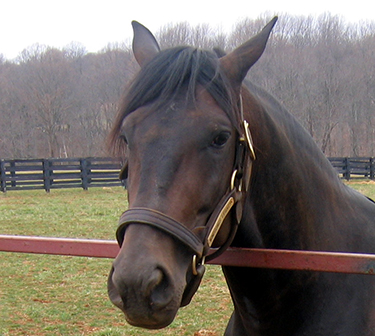IMMEDIATE RELEASE Contact:
March 20, 2018
www.nj.gov/agriculture
PO Box 330
Trenton, New Jersey 08625-0330
Jeff Wolfe
P: (609) 633-2954
C: (609) 433-1785
E: jeff.wolfe@ag.nj.gov
(TRENTON) – A Union County property quarantined by the New Jersey Department of Agriculture last week after a horse developed the highly infectious equine herpes myeloencephalopathy (EHM) has had a second horse test positive for the respiratory form of equine herpes.
The second horse had an elevated temperature and was showing respiratory signs, but no neurological signs were noted by the attending veterinarian. The second horse has been moved into the isolation barn on the property and the entire property remains under quarantine. Temperatures continue to be taken twice daily on all horses on the property. No horses have moved onto or off the property in approximately a month, therefore exposure to horses outside the area is considered unlikely.
The first horse was moved into the isolation barn on the property last week and the property was placed under quarantine. The finding of another positive horse has reset the quarantine clock and will delay the release date another three days. These are the first reported EHV-1 cases in New Jersey in 2018.
The EHV-1 organism spreads quickly from horse to horse and can cause respiratory problems, especially in young horses, spontaneous abortions in pregnant mares, and the neurologic form of the virus can result in death. The incubation period of EHV-1 is typically 2-10 days. Clinical signs include respiratory disease, fever, nasal discharge, depression, cough, lack of appetite, and/or enlarged lymph nodes. In horses infected with the neurologic strain of EHV-1, clinical signs typically include mild incoordination, hind end weakness/paralysis, loss of bladder and tail function, and loss of sensation to the skin in the hind end.
The virus spreads readily through direct contact with infected materials. While highly infectious, the virus does not persist in the environment for an extended time and is neutralized by hand soap, alcohol-based hand sanitizers and sunlight. The virus does not affect humans and other domestic animals, with the exception of llamas and alpacas.
Concerned owners should consult with their veterinarian prior to taking any action as the clinical signs of infection with the neurological form of EHV-1 (EHM) are common to many other diseases. EHM is a reportable disease in New Jersey. If an owner has a horse exhibiting neurologic signs or suspects Equine Herpes, they are directed to call their veterinarian immediately.
The NJDA Animal Health Diagnostic Laboratory provides testing for the neurologic form of EHV-1. For more information, visit http://www.jerseyvetlab.nj.gov/ or call 609-406-6999.
###
To learn more about the New Jersey Department of Agriculture, find us on Facebook at www.facebook.com/NJDeptofAgriculture and www.facebook.com/JerseyFreshOfficial or Twitter @NJDA1 and @JerseyFreshNJDA.



